with 🎙️ Mina Guli, CEO and Co-Founder of the Thirst Foundation, Director of the Antarctic Science Foundation, Director of the Global Water Partnership and Adventurer.
💧 The Thirst Foundation is dedicated to getting the global water crisis to the top of the agenda and driving innovation to use less water every day.
This episode is part of my series on the UN SDG 6 and the path to reach it. Check it out! 😀
What we covered:
🏃♀️ How Mina Guli ran across 7 deserts on 7 continents in 7 weeks to raise awareness on Water Scarcity
🏃♀️ How she completed 40 marathons in 40 days and started a 100 marathons in 100 days series, then broke her leg in #62
🍏 How her bringing the “Close the Gap” message across to 4 billion people is proof that we’re all capable of doing anything
📚 How the Water Crisis is the story of People, and how we shall get them heard
🍏 How we must find a way to accelerate action to Close the Gap
🙋 How we need to put water onto the global agenda
🌎 How the UN Conference on Water in 2023 is our opportunity to move the needle and Close that Gap
💪 How there’s Jeff Bezos, the Pope… and Mina on Fortune Magazine’s list of the 50 greatest leaders in the World
🍎 How regardless of where you are on earth, Water Scarcity will impact you through the goods you consume
🍎 How if we don’t care, there’s always going to be something more important or simpler than water to put on a corporate agenda
🍏 How the right scale to ignite action might be the companies, as they are quick to act when something impacts their supply chains or their bottom line
🍏 How Water is the main ingredient in everything we grow or manufacture, and how it’s not as simple as water price equals water value
💪 How individually you can have an impact but together we can change the World
🧮 People filling in for Marathons 63 to 100, Agriculture as a key battlefield, the role of individuals, regulators, and policymakers… and much more!
🔥 … and of course, we concluded with the 𝙧𝙖𝙥𝙞𝙙 𝙛𝙞𝙧𝙚 𝙦𝙪𝙚𝙨𝙩𝙞𝙤𝙣𝙨 🔥
Teaser: Close the Gap!
Resources:
🔗 Have a look at Thirst Foundation’s website
🔗 Check Mina’s website.
🔗 Read the report Mina co-wrote with the Pollination group.
🔗 Come say hi to Mina on LinkedIn.

is on Linkedin ➡️
Infographic: Close the Gap!
18-months-to-Close-the-Gap-Mina-Guli-InfographicQuotes: Close the Gap!
Square-Quotes-Mina-Guli-Thirst-Foundation-Close-the-GapFull Transcript:
These are computer-generated, so expect some typos 🙂
Antoine Walter: Hi Mina, welcome to the show, but I’m very happy to have you let’s start with a postcard. Where are you exactly. And what can you tell me about the place you’re at?
Mina Guli: So I’m going to give you a few tips. We just took the world record for the most locked down city in the world, which we took the record from Dublin and London.
That’s the tip. I’m not in London or Dublin. I am far on the other side of the world when we were little. My parents used to joke that if we dug holes deep enough, we would reach you. And what else can I tell you? We’ve just had winter. So we’re moving into summers that tells you I’m in the Southern hemisphere.
Do you want to have a guess?
Antoine Walter: in Austria?
Mina Guli: Oh yeah. Austria. The place where everybody says, oh yeah, I’ve been to your country. You’re right next to Germany. Right. And I have to explain no, that would be Australia, Landon kangaroos, and koalas, not the land of lederhosen
Antoine Walter: and what exactly in Australia.
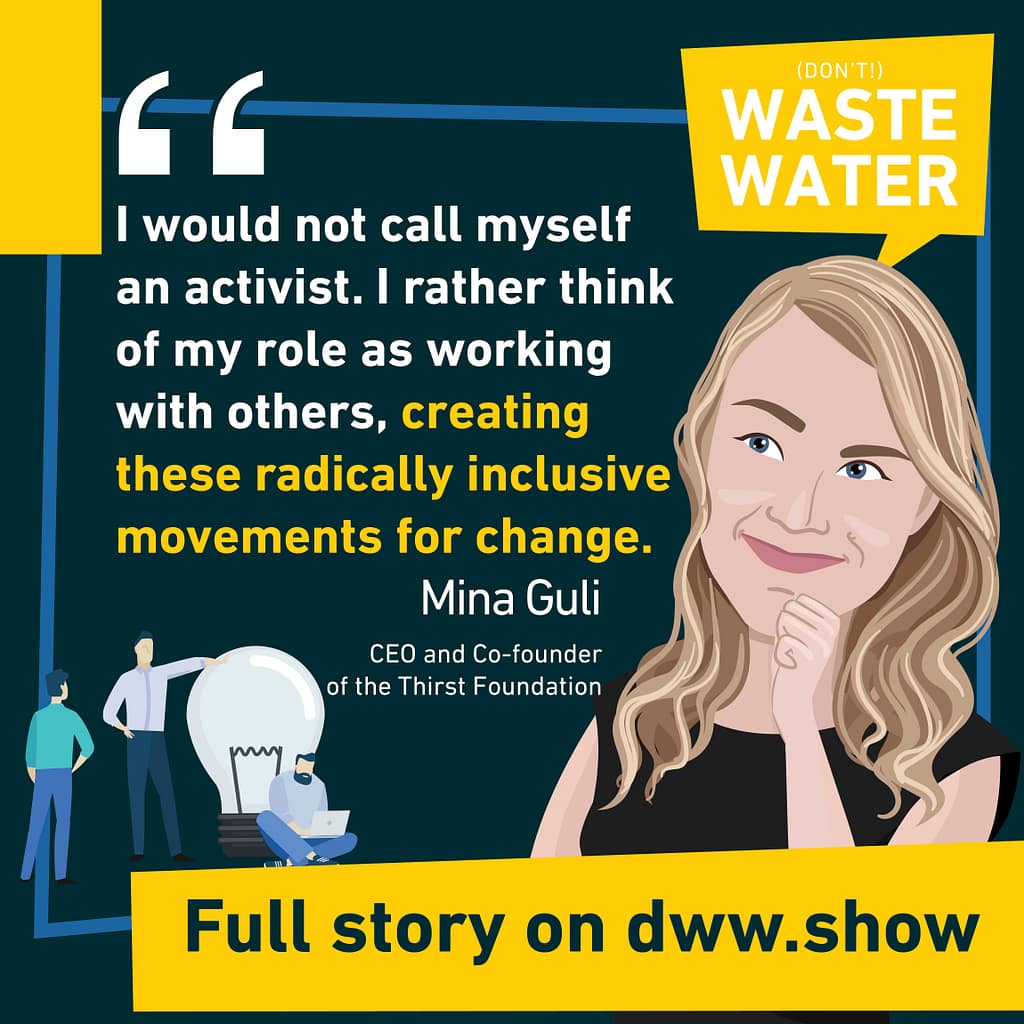
Mina Guli: Yeah, I’m located.
Okay. All jokes aside. I’m located in Melbourne. So I’m on the Southern bottom of Australia, I guess you could say. And a hop step and a jump away from New Zealand.
Antoine Walter: I have. And that’s my two seconds of talking about myself, which is very impolite, but my very first large treatment plants I visited was in Melbourne.
It was the desalination plant of Melbourne when it was still under construction. So that was almost a decade ago, I would say, but beautiful place.
Mina Guli: A beautiful place, but not without its major water challenges. You know, we’ve built the desalination plant as a mechanism to insulate the city against water scarcity and water related risks.
And you know, now at the time it was highly controversial on the front pages of the newspaper. Everybody said, no, it’s ridiculous. It’s going to be a white elephant. And it’s now operating almost full time. And people are talking about the plans. Build a second DSL plan. So, you know, this is, if you want to know what it’s like to be in a city, which has to confront these water challenges every day, this is a place to be here, Cape town.
And increasingly, sadly, there are more and more of us living in more and more of these cities that have had to confront these kinds of changes. So I
Antoine Walter: think that’s something we will cover a bit more in-depth in our deep dive with this water crisis elements, but just right before, like to take just a step back to talk a bit about you, just because it’s not everyday that I have someone on that microphone, which was in the list of Fortune Magazine of the 50 greatest leaders in the world.
And I love the way you caught that on your website. Just saying that there’s Jeff business, the Pope and you on that list. So they defined you as a corporate lawyer activist. Is that still the right definition? And do you like that? What you’re presenting yourself and if not, what would you do in this.
Mina Guli: Yeah, it’s funny. When we think about the label is that we give people a week of things or organizations, because we like to put people or things in boxes and define them. It makes it easier to relate to them. I have conversations with them. I can’t deny that I was a corporate lawyer because I was for many years, actually in multiple different countries with multiple different hats, doing a variety of things that I never expected when I was a kid I would ever be doing.
And now people refer to me as, again, a bunch of different things and a bunch of different boxes. And one of them is activist. And I’m not sure that I like it, nor that I would call myself an activist. And that’s because to me, an activist sounds like I am lobbying people to do something. Lobbying companies.
Businesses or governments or, or investors to do something. And I’d much rather think of my role as working with others, creating these radically inclusive movements for change these coalitions, these collaborations, because in a place or for a topic like. We’ve failed for years because we’ve fought against one another, or we’ve been lobbying one another to do things.
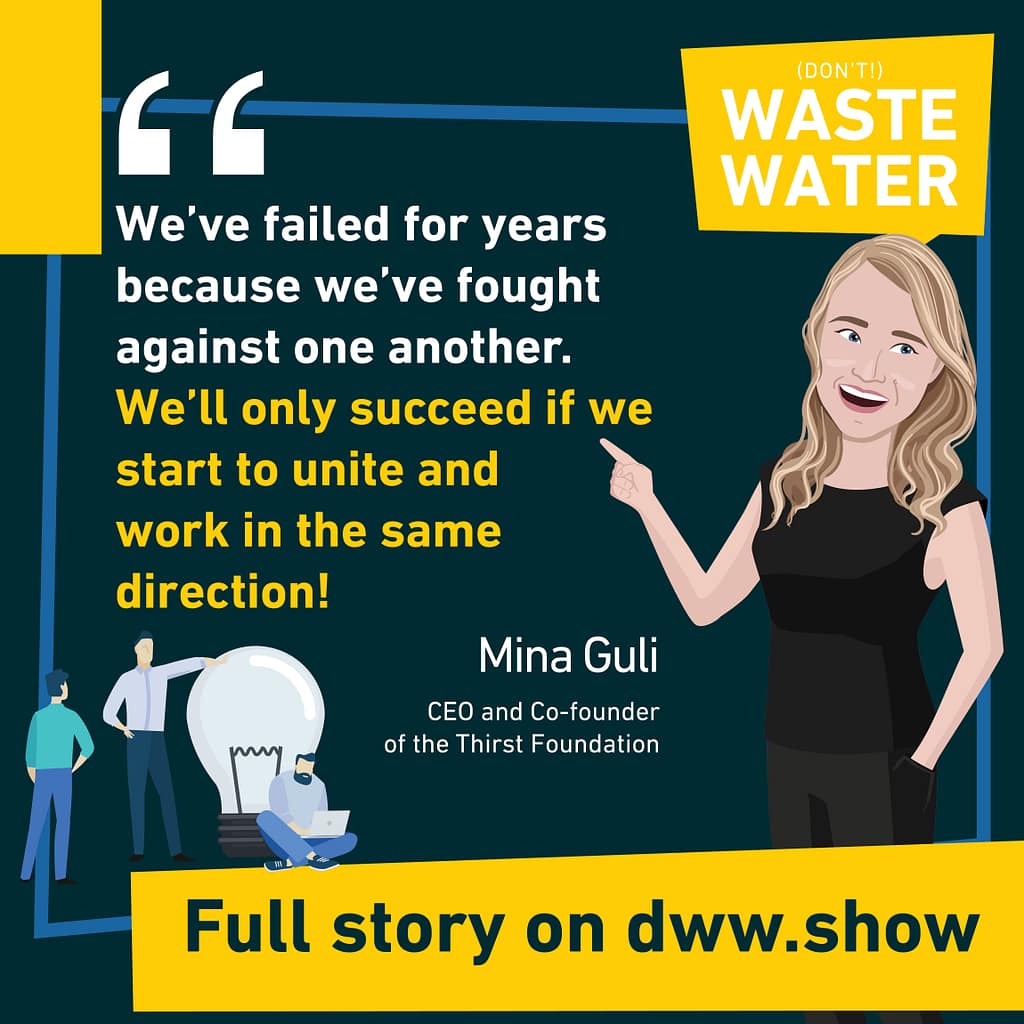
And the reality is that we’ll only succeed if we start to unite and work in the same direction. So for that reason, I don’t want to be an activist. I want to. Be a catalyst for change. I want to show people, organizations, the government, everyone everywhere, the power of what’s possible. When we join together, we all put our shoulders against the wheel in the same direction.
And just how far we can take it. And I think too often we’ve looked at these big global challenges, climate change, water, all of these things, and we say, It’s too big and I’m just one person, one earth could I possibly do that? We’ll deliver meaningful change at the scale that it needs to, to solve this problem.
And the reality is, as we’ll explore over this podcast, we are all capable of doing anything. You know, people say, oh, I don’t have anything. I’m just nobody. And I say, you don’t have to be anyone to be someone. Every single one of us is capable of doing great things. Maybe it’s not about changing. The weld, but maybe it’s about changing your world.
Antoine Walter: That is a fascinating takeout to see yet. You’re not just everyone. You founded thirst, I guess, roughly at the same time where I was visiting that plant in Melbourne, not to give too much detail on the dates, but you’re still leading thirst today. What is your elevator pitch?
Mina Guli: Yeah. So I built thirst as a not-for-profit focused on solving the world’s water crisis.
And we do that by creating large inspirational out of the. Campaigns and specifically of campaigns that are focused on building ecosystems of stakeholders that we can mobilize to cure what we call water blindness or this whole concept of just being ignorant about the nature and extent of the water crisis, that working together to put water at the top of the global agenda and to drive really bold groundbreaking action on.
And
Antoine Walter: when we say bold action, you have a certain sense of. Some light on the topic. I’m going to make you a stupid joke that I guess 2000 people already made you, but you know, I’m running sometimes on Sundays with my daughter, but one day I hope to be running a marathon, which, um, I tried once, but never didn’t see the finish line and you run 40 marathons over seven weeks over seven countries.
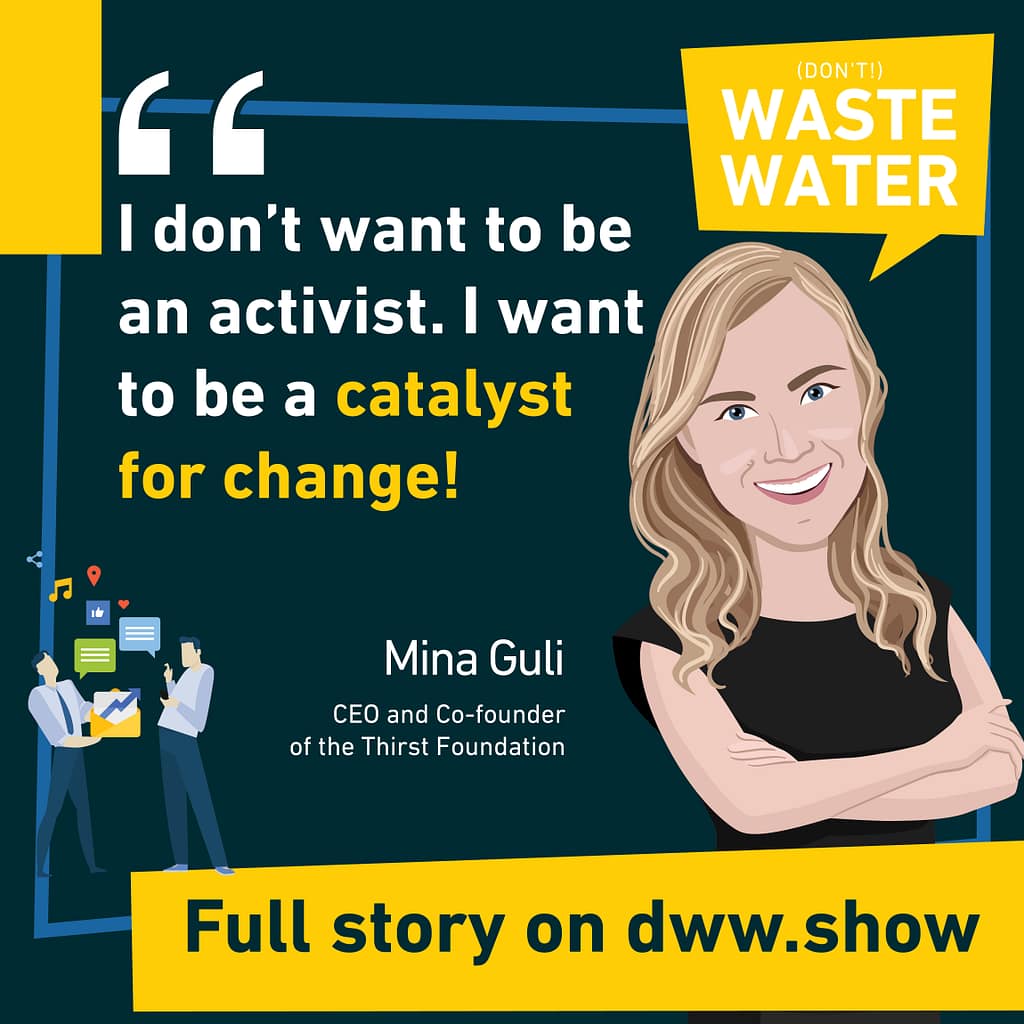
Where did you, did you find this idea and how did you come up with that way of, of shedding the lights on the topic of
Mina Guli: water? Yeah, actually even worse than just running across seven deserts on seven continents in seven weeks, because the reality is a year later I ran 40 marathons in 40 days down six of the world’s great.
And then it just over a year after that, I set out to run a hundred marathons in a hundred days, all over the world. Again, obviously to raise awareness about water. Now, what happens is when people hear that this is what I’ve done, they instantly think I’m some crazy runner that loves running ridiculously long distances in extreme locations, all over the world.
And the reality is far from that. Don’t enjoy running. I don’t like it. I’m not good at it. And I’m definitely not naturally inclined to do it. I got into running because I hurt my back. Very badly. Doctors told me I wouldn’t be able to run again. And then I said, I’m not going to allow others to set limits or boundaries on what I can and can’t do.
Why should I let the goals and aspirations of others limited as they are define my. And I set out to prove them wrong. When I set out to prove my, to myself, that I was capable of doing whatever I set my mind to, and I started swimming then biking, and then eventually running. And, you know, it’s taken me on this incredible journey, not because I want to show the power of being able to run long distances, part of it’s that, but I want to use my feet to go to places.
That have suffered that are at the front lines of the water crisis. I want to meet people and hear their stories, and I want to create a platform that allows them to lift up their voices and share their own stories to the world. Because I think for too long, we’ve had. Business leaders, investors, corporates that exist in cities and in countries where water flows freely from a tab they’re completely divorced from what’s going on in other parts of the world, from what’s going on at the bottom of their supply chains.
And it’s time for us to connect the dots. And it’s time for us to say, do you understand that the decisions you make here today in New York, London, Tokyo, wherever it is the decisions you make at this boardroom table. Impact the lives deliberately or as a corroboree of millions of people all over the world.
And that has to change. We have to reconnect these people. We have to reconnect supply chains and we’ve got to help people to understand that water is not something that can be ignored. Water is the foundation of everything. We have everything we are and everything we trade every single day.
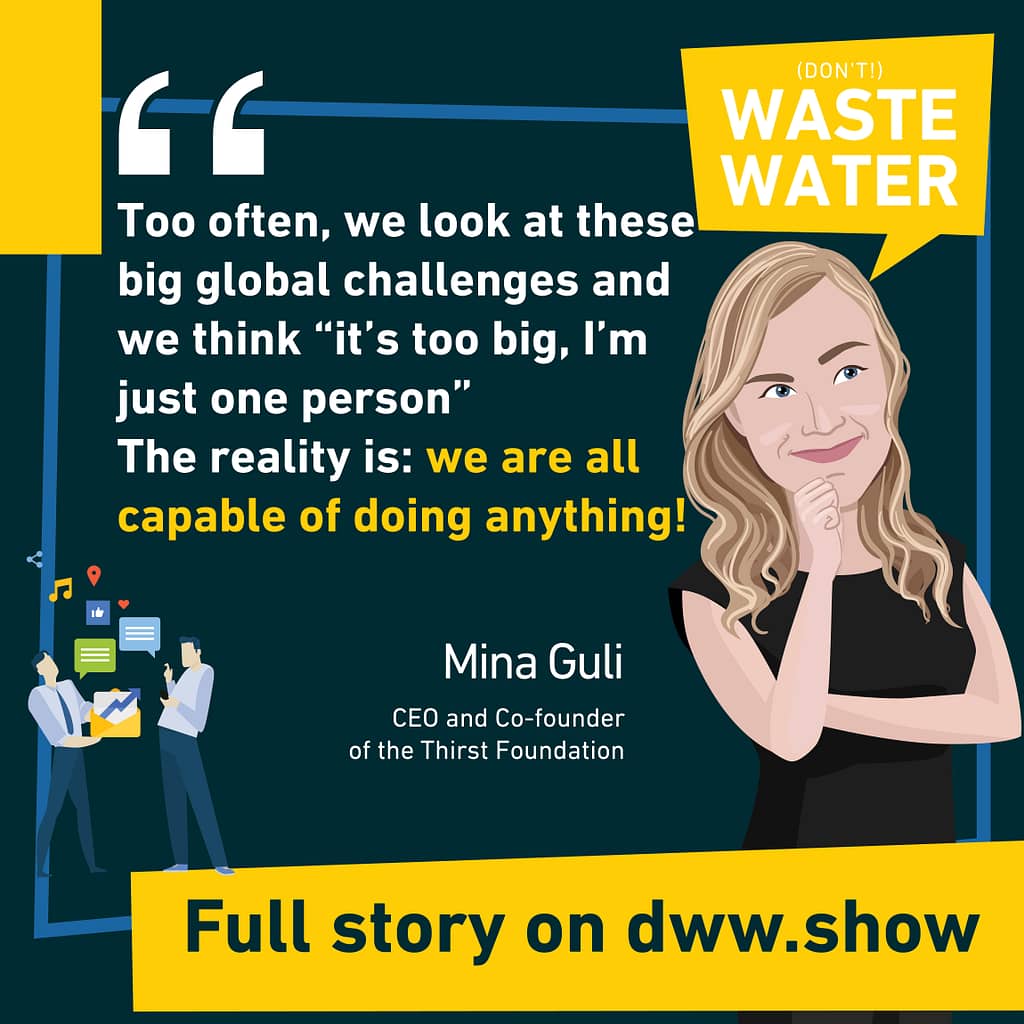
Antoine Walter: That’s a very important and fascinating point because it’s something we’ve addressed quite regularly on that microphone is that maybe the biggest problem with water is that it’s so obvious it’s everywhere and we know we need it.
So it’s just something which is around and that we don’t realize how important it is as long as we have it. It’s only the day you’re missing water that you suddenly realize, oh, that. That’s important. How would you define the water crisis? Is it something which is only happening in a part of the word or are we all within that?
Mina Guli: We are all living in the water crisis. I think it’s easy to look at some of these statistics, you know, I can reel off, like, I’m sure Anton, you can do the same thing, especially given the kinds of people you talk to on this podcast. Thousands of statistics. Oh, by 2030, there’s going to be a 40% gap between the demand for water and the supply of water available.
Oh right now 3 billion people don’t have access to adequate hand-washing facilities in the middle of a pandemic disgraceful. Deforestation gets front page news, but like our wetlands are disappearing. What, four times faster than our rainforest. You know, these are horrifying statistics, but it’s too easy to look at those, like, you know, the polar bear on the iceberg, floating out to sea and just let them be immune.
We’re numb to these problems. We’re numb to the images. We’re numb to a lot of these statistics and they just feel like numbers on a page. We need to bring these numbers to life and we need to help people to understand that these aren’t just numbers on a page. They’re real people’s lives in places all over the world.
And then not someone else’s problem. They’re our problem too. And that is because water goes into everything we use. We buy and we consume every single day. And when you’re wearing a really smart outfit talking on the microphone, you’ve probably got your mobile phone off in your pocket. Probably had at least one of your friends.
So at least one cup of coffee this morning. You know, just the water that went into what you’re wearing today. Like just that one. Smart, cool outfit took more water than all the water you’ve drunk in your whole lifetime. Just one outfit took more water to make than all the water you’ve drunk in your whole lifetime.
That’s staggering, but what’s even more staggering is that you have, I’m sure you’re French. I’m sure we all do have more than one outfit in our. And when you think about that multiplied by the billions of people across the world, and you realize that we all want more, need more energy, food clothing, and you start to realize this is not just a minor problem.
This is a major issue. That’s getting worse every single day. And without water, the whole thing will start to crumble and fall apart.
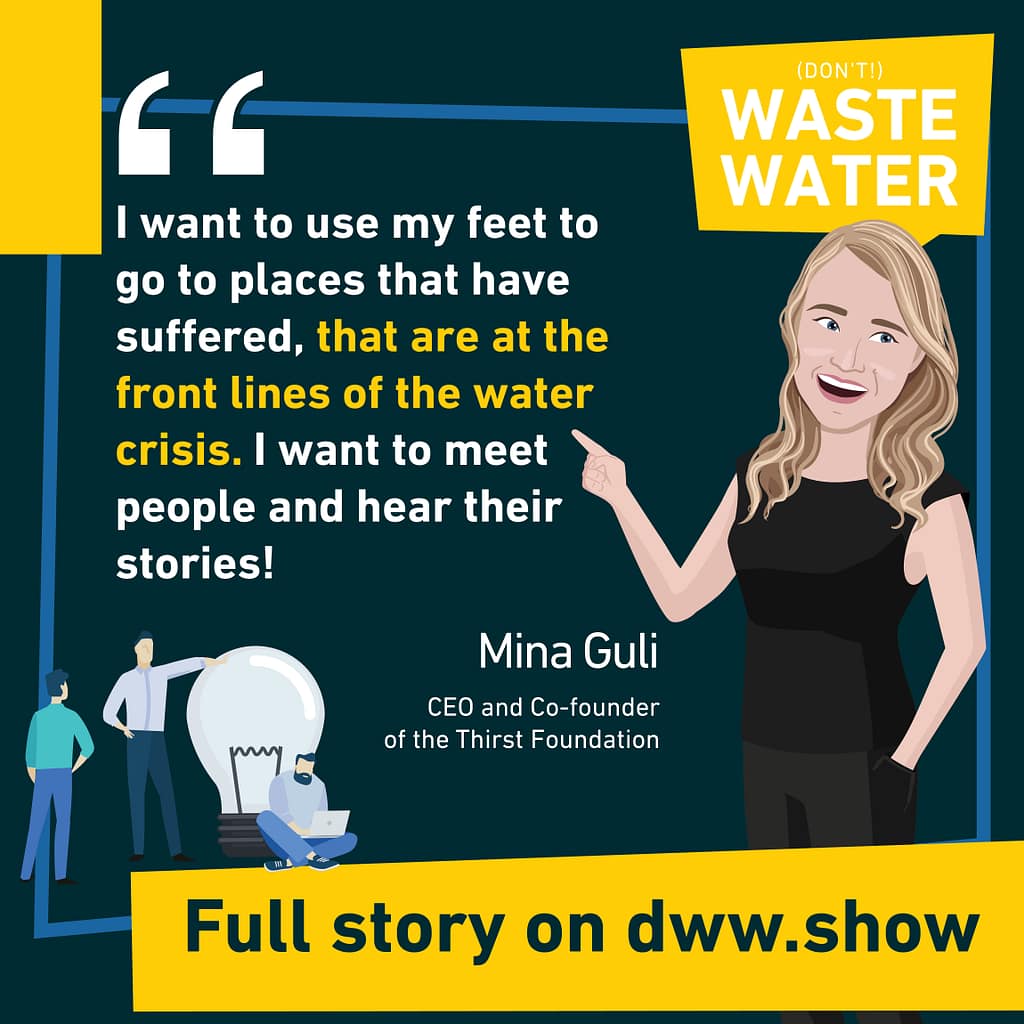
Antoine Walter: If I was to put one concept around what you just explained, it sounds like water scarcity is going to be the main driver. Like we are missing water, but that’s one of many because water scarcity, for sure.
I’m not minimizing it. It’s probably a very hard concern. But you also mentioned that the wetlands is appearing. You mentioned the overuse of water at some places and. It’s many elements and yet there’s one thing missing. There’s nothing uniting all of these messages. And that’s something that struck me.
When I read the report, you just published around the water crisis and that’s this element of the missing. I mean, if I was to make a weird analogy, it’s this, this one, ruling them all elements of the water message. I’m not going to be a bit all over the places, but it starts with, with the very beginning.
Published a report, which is very eyeopening on that element and on others. But what’s the story of that report. Why did you come up with that report? And what’s the key message to you inside the report?
Mina Guli: The reality of, of why we did the report was, you know, for too long, we’ve all looked at water and said, water is everything, but we treated as if it’s nothing.
We use it. We abuse it. We polluted. We use too much of it. So we set out to say, if water is everything, we treat it as if it’s nothing. Why is that? And what needs to change in order for us to solve this problem? And how can we bring together this highly diverse group of people around the world to actually agree on United way forward.
So. We started having a series of conversations, pulling knowledge and information together and said, what would happen if we looked at some of these other incredible movements for change on other big global issues around the world? We picked climate change because it’s one. I’ve seen over the years, this kind of more rapid acceleration of change.
And we said, what would happen if we actually looked at some of the lessons that we could take from something like climate change and apply it to water? Could we actually accelerate action? Because here’s the thing about water. We don’t have 20 years, 30 years or 40 years to solve this problem. I have been to the front lines.
I’ve spoken to people. We cannot ignore this and say, we can admit. We can not admit failure. How do you explain to farmers like, you know, 24 year old Christian, I met in South Africa who was sitting there inheriting a farm from his father where the dams were so dry. I could run across them or to people living on the banks of the salt lake in Utah, who are literally watching the waters recede before their eyes.
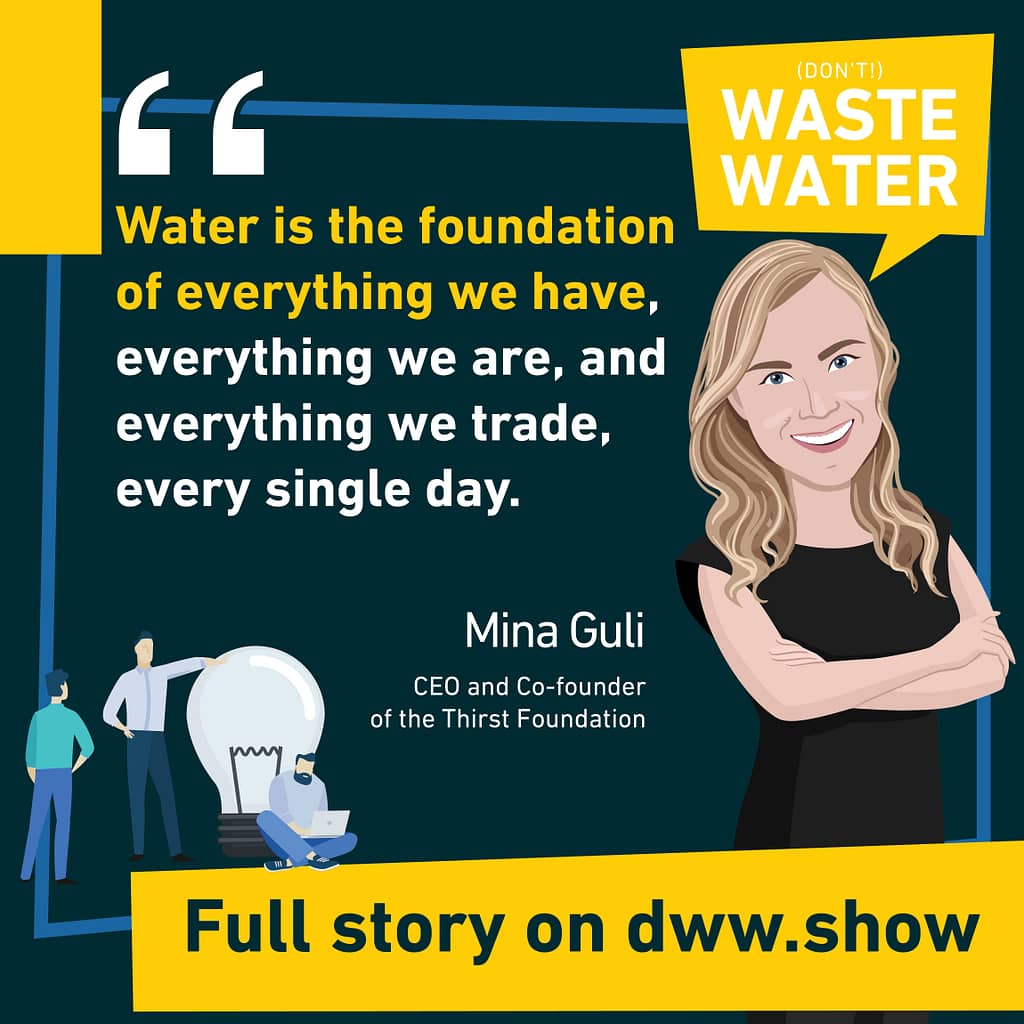
Looking at the dried up, RRC saying we will be the next ROC for 30 years. Scientists told everybody that the ROC was drying up and yet they continue to use the water. And there’s people in Utah saying this is going to be us. No, we cannot. Do anything but succeed. We must find a way forward. And in order for us to do that, we really need to find a way to accelerate action.
You know, the estimates are from the UN and others that we need to accelerate our action. By four times, if we’re going to reach the targets turned out in SDG six, which are targets that we need to meet by 2030. I do not want to be the one that turns around to the next generation, nor do people like Christian, nor to the farmers in Utah, nor to the women and gills spending hours and hours every day, going to fetch water to tell them that, oh, it just got a little bit hard.
We couldn’t figure it out. We couldn’t get our act together. And most importantly, we couldn’t work out how to align all our forces together. So sorry, people, we failed, you might die, but we failed. The only way for us to move this forward at an accelerated pace is to learn from the mistakes and the successes of others, like climate change and in the climate space, as you said, Antoine, it’s become increasingly clear that there were a couple of really key things that helped to move things along.
One was the. Really unifying call to action at 1.5 degrees or net zero w whatever, you know, there are a couple of major rallying cries that people diverse people across the sector have been able to get behind. We are missing that in. We’re missing this mobilized force, you know, in the, in the climate space to put climate on the agenda to start having conversations about climate, not just in the media, but amongst investors and policymakers and corporates at a boardroom level, we don’t have that in water.
And finally, we don’t have this really clear path forward of commit to. When missing all of those things, and unless we can find a way to deliver on them, we’re going to have a problem in, in meeting these targets. And as I said, problems in meeting targets need to be overcome because there is no choice, but to succeed in delivering on the target, stood out in SDG six failure is not an option.
Antoine Walter: How do you deal with the differences, the fundamental differences between climate change and the water sector and the water crisis, because. The temperature on earth heats up by three degrees. Every human on earth is going to feel that. So there was a sense of being all together in that. Whereas if I look at my own situation right now, when I’m sitting just next to the Rhine river on the ground water, which is the largest groundwater reserve in Europe, which means the run we recruit.
I would still have water for 200 years. I won’t feel the same urgency, which is absolutely wrong, but I won’t feel it’s personally, if at the other end of the words, people are really lacking this access to water. So how do we bring everyone on the same boat when it comes to water? And is it really the same then with climate change?
Mina Guli: Yes. Antwon. Let me ask you a few questions today. Um, you probably had a cup of coffee. Where did your beans come from in your coffee, inside the label of your shirt? It probably doesn’t say made with water from the. It may well have come from somewhere, half a world away. So I think it’s a misnomer for us to sit in these big cities where water comes out of a tap and assume that the crisis won’t touch us because the reality is the crisis will touch us.
It’s a crisis that’s far greater than. Scarcity, as you rightly pointed out, and as the crisis, five deep into our ecosystems and the networks that we need to support the water that comes up to us because what it doesn’t come from the tap, what it does come from an ecosystem. So it is the whole, all of the aspects of water that we’ve talked about, that you’ve mentioned the pollution to the recycling, to the re.
To the efficiencies. All of these things are related and necessary to solve. If we actually going to make headway into this.

Antoine Walter: On that microphone. I had the discussion with, uh, David Lloyd Owen, who wrote a book global water funding, where he expresses also that point where he says exactly what you said, that we are going at one fourth of the speed we should to achieve as to just six by 2030.
But his conclusion differs a bit from yours because he’s saying, okay, it’s not happening by 20th. Let’s not accept it, but let’s digest it and let’s make sure that we achieve it by 2050. If I get your right. What you’re saying is that we might not have these additional 20 years. So the time to act is today, which means you still believe that if we act right, we can close the gap by 20th.
Mina Guli: I think failure is not an option. I think that passing the buck for another 20 years, we’re not talking one year, we’re talking 20 years between 20, 30 and 2050 is completely unacceptable. I have seen people’s lives being changed by lack of ability to access water or by water pollution or, but all these aspects of the various aspects of the water crisis that we’ve talked about.
You know, I’m one of my runs in South Africa. I took 10 liter, plastic bottles of water to deliver to kids in a town that had literally run dry. These kids were staying home from school to wait for the water to be delivered. And as we drove off on the trucks that were supplying the water, you could turn around and watch fights breaking out on the street.
When people realized there wasn’t enough water to go. That is reality, and it’s not a life I want to leave for the next generation. I do not want women and girls like I’ve seen in India and places, a variety of plate countries around the world, spending hours every day, walking forward. I do not want Bedouins in places like Jordan.
We’ve been, when I was in Jordan running, we spent days looking for water, worrying, where we were going to get our next water from. It’s a terrible, terrible thing to worry about and to be thirsty, to be truly thirsty. This is not something we can just leave on one side and say, we’re busy. We’re a bit preoccupied.
We’ve got other priorities. No, this is something we need to fix now. Not tomorrow, not the next day, but right now.
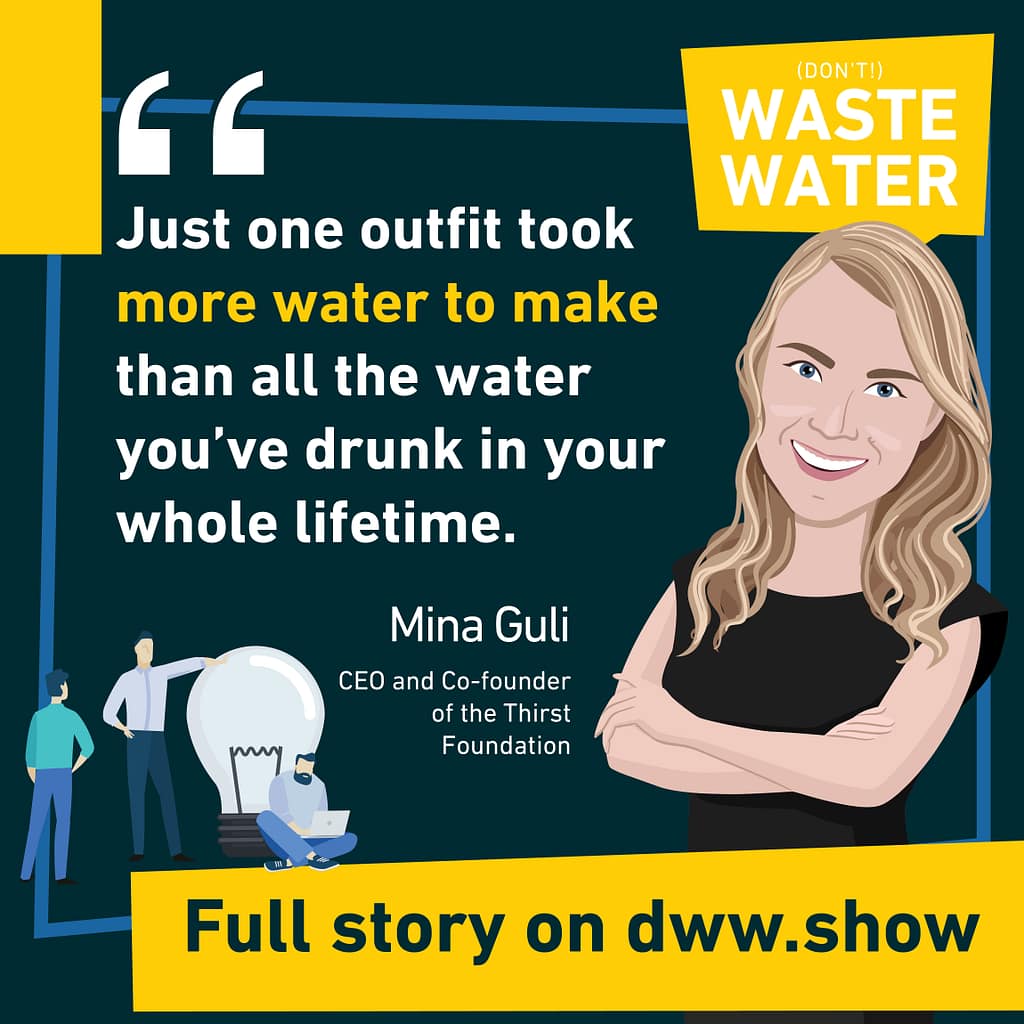
Antoine Walter: Is it possible to rank the biggest hurdles we have towards achieving the goal, achieving this, closed the gap. And if we were ranking them, do I understand it right from what you were explaining from what, what you were doing over the past decade?
And from what I read in the reports, that’s probably communication and education is going to be on the top of the list.
Mina Guli: Yeah. So rather than thinking about the problem, let’s talk about the solution. In almost all the conversations about water. It’s always, what’s the problem. What’s the problem. Okay. We know we have a problem and we know that we’re pretty stuffed.
So what are we going to do to fix this? And I think we need to do three things. I think we need to mobilize a call for action worldwide. We need to step up and we need to say the voice of thousands of people across the entire world. Unified saying, we want action on. We need to mobilize a call for action worldwide.
Second, we need to put water onto the global agenda. Enough that water is cast aside in favor of other things, which might be more popular, might be easier to understand or might be easier to take action on. Now, water is the, one of the biggest risks facing our communities, our societies and our economies eat must be on the agenda.
It must be on the agenda in boardrooms, in political environments, in parliaments, in Congress, across the world. We need to put water on the global. And then third, we need to chart a clear path forward for action. That means we need to unify around saying, you know, maybe we can’t come up with the one thing that we want companies and businesses and, and investors to do.
Maybe there isn’t one thing. Maybe there are multiple things, but surely we can agree on 1, 2, 3, 4, 5, even six things that we can get companies to do that we can all agree. If we do these six things, then we will move forward on. So I think we need to mobilize a call for action worldwide. We need to put water on the global agenda and then we need to chart a clear path forward for action that allows all of us everywhere to actually do something together to solve this problem.
Oh, and by the way, I think we’re at a really unique moment in time, which is that we have an opportunity to move from water is a major problem to saying, how can we be part of the solution? And that unique moment is an opportunity in 2023, when the United nations hosts their big conference on water the first in almost 50 years.
And we have an opportunity at that time to say enough talk now. And the only way that that will happen is if we spend the next 18 months moving together in a unified way to deliver on these three solutions. And to say by the time we hit the steps of that United nations, where that conference is going to make with world leaders and corporate leaders from across the world, by the time we get there, there must be no option, but to take meaningful, serious, bold action forward.
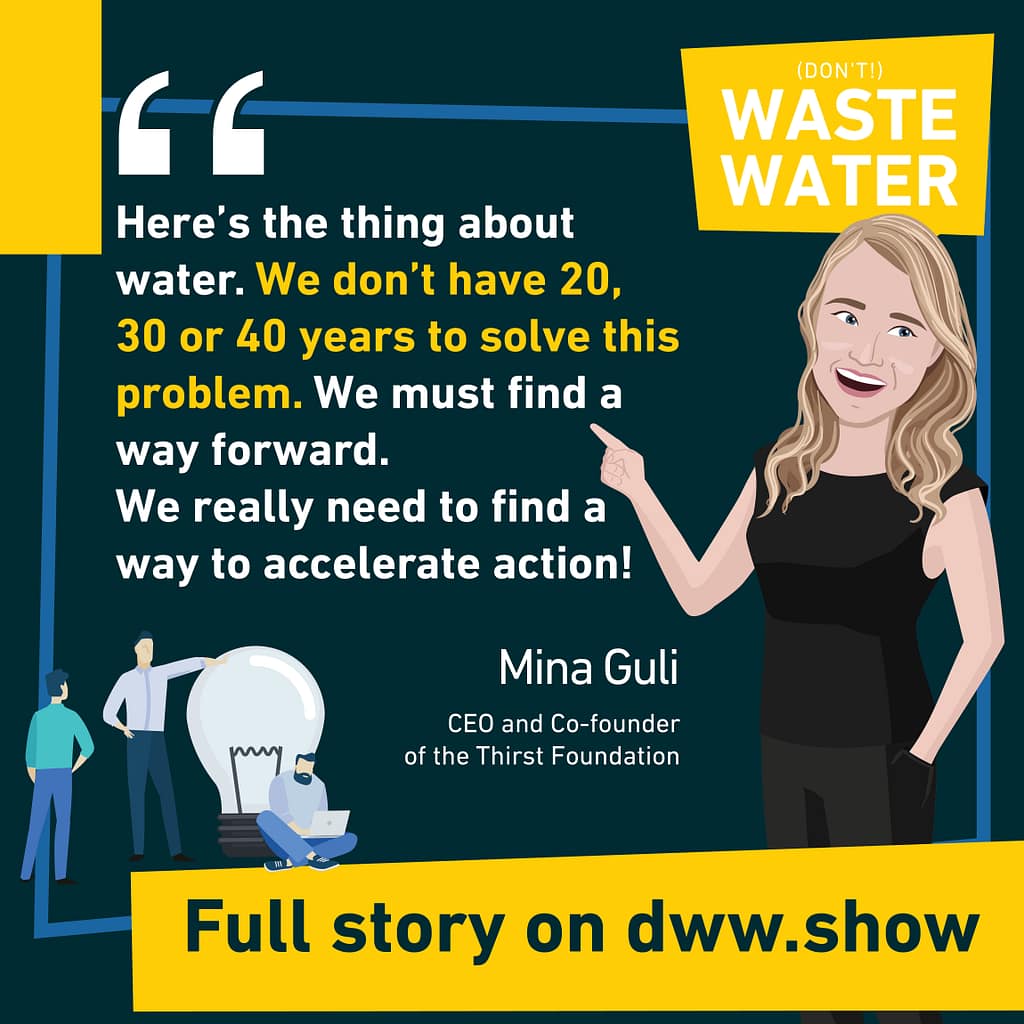
But it’s not going to happen if we sit by and do nothing and it’s definitely not going to happen. If we say 2050 is okay, we cannot allow anybody off the hook. We must hold feet to the fire. And we must say, this is action. That needs to happen.
Antoine Walter: So, if we have to build that path to action in the next 18 months in your report, you gave some tracks which we shall follow, which are probably part of the solution.
We should agree on the science to be sure that we have the right data, to be sure that we are all talking about the same thing we need to. Find new ways of financing this, closing the gap. And we probably need to have some innovation somewhere down the road to bring an additional kick in efficiency in treatment and so forth and so on.
How do we build the solution
Mina Guli: in order for us to really drive this whole process forward by 2023, we need to create a sense of urgency and we need to create a sense amongst decision makers everywhere. That the key stakeholders, voters, consumers, people within their supply chains care about this issue because unless we can show we care, there’s always going to be something more important to put on a corporate agenda and probably something that’s way simpler to get your head around.
So we need to build a movement for change. We need to get to a place where we’ve got thousands of people around the world who are talking about water, sharing information about water and saying we demand action is taken. And I think if we can create that, if we can really build that movement, that sense that we all care about water, not we have the Waterworld, but we have the.
No, this is, has to go outside the water bubble and into the main lexicon of people around the world. And we need to get those people to lift up their voices, to share on social media and to actually start to create this groundswell of conversation that says enough, we want action, not tomorrow, but today.
And I think that if we can create that and if we can build that, then we will deliver.
Antoine Walter: And that action. What is the form and shell take? Because water, is it a highly regulated sector, highly regulated market, highly regulated industry. So does this movement from the population, from the people, is it sufficient to achieve this close the gap targets or do you think it goes through regulation?
Mina Guli: Actually, I think that to point the finger at regulators and policymakers is to shirk responsibility and to look at things in a very conservative way. And I think actually fundamentally it’s wrong. I’m sorry to be so blunt on Australian. We’re pretty blunt. So here’s my view about this. My view is that first of all, if you run the numbers,.
There is no way that we as individuals can solve this crisis, no matter how many short showers we take, how many times we turn off the tap. When we brush our teeth, we cannot individually solve this. And that is because the vast footprint comes from companies. And also obviously from governments and from regulators, if we look at the broader ecosystem then of who can actually deliver change, the reality is it can be companies, it can be investors, or it can be policymakers, investors, themselves don’t have a footprint.
So they exist in an environment where they can influence change, but they don’t have the capacity to directly make that change. Policymakers policymakers definitely have the capacity to make change themselves, but they exist with their hand permanently on the snooze button. They respond, they do not initiate.
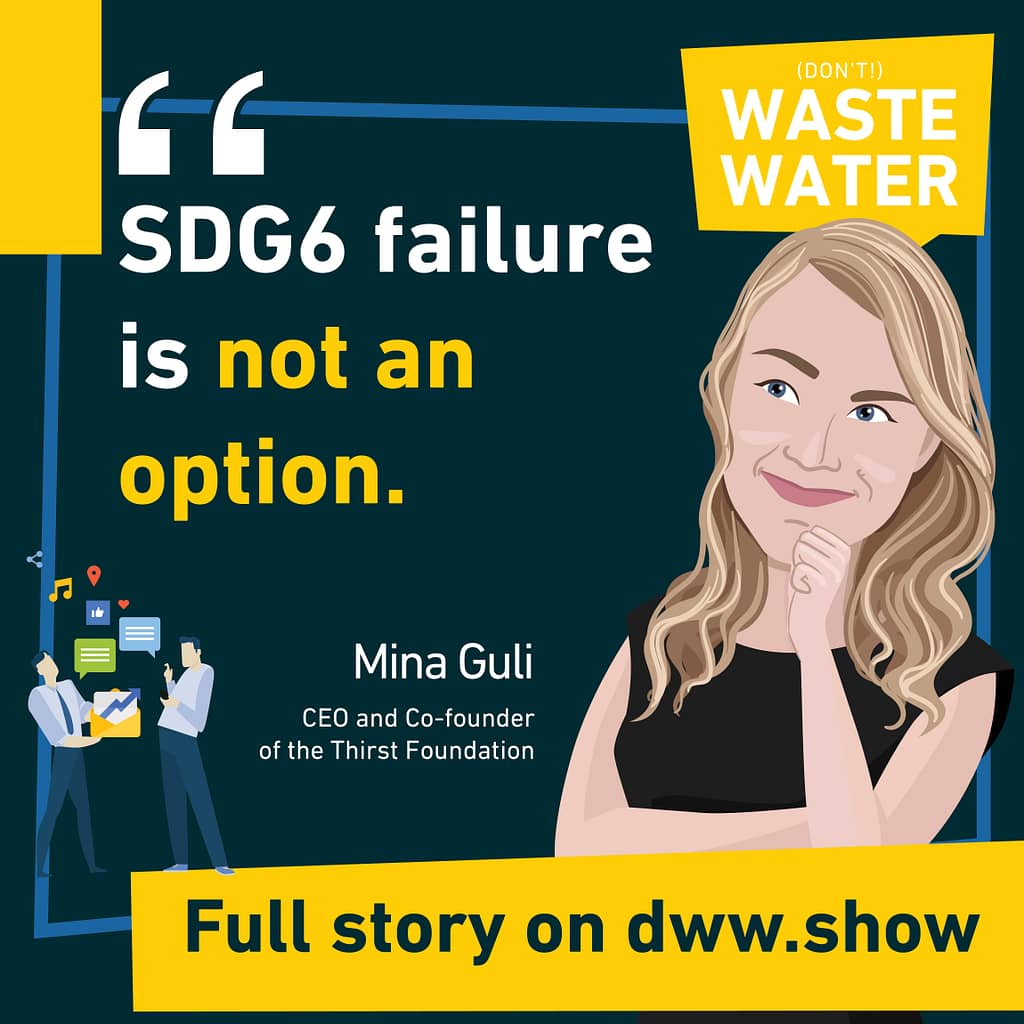
So until they can see that there’s a groundswell of opinion or movement, they won’t act. So they are the last. Contrast that with companies, companies can be quick to act when they know that something impacts or has the risk against their supply chains or their bottom line companies have direct water, footprints and companies have the capacity to actually deliver change right throughout the tentacles of their wide reaching supply chains.
So the reality for all of us, is it, I don’t think it is an answer that we look to for policymakers and regulators, but I do think that we can work with companies and others in this space to say, how can we work together to make meaningful change? What signals do you need from regulators to demonstrate that you’re moving in the right direction?
And what do you need from investors? To help you to quantify the risk and then figure out how much you can spend on or how many changes or what you can do internally. And would it deliver the shifts that these people, these people, and we as communities and shareholders and voters are all expecting you to know.
Antoine Walter: You pointed at companies in general, but in the report you highlight how there is a 70, 20 10 relationship in the water uses worldwide with 10% for the households, 20% for the industry and 70% for agriculture, which if we want to be efficient and there’ll be straight to the point, it means we would have to first focus on agriculture.
Do the same mechanism. You just describe, apply to agriculture as well, where it’s harder to go into reuse policies and, and reduce your water footprint when water is probably the first ingredient of what you’re growing.
Mina Guli: Yes. But I don’t understand why it’s harder because you said in agriculture is harder because water is the main ingredient, but the water is the main ingredient in everything.
You know, even if you’re a manufacturer. And you are manufacturing clothing where you’re manufacturing, anything, whatever has come into your factory, the war ingredients that enable you to make your things use water, probably quite large amounts of it, because for a lot of these cases, the raw ingredients come from agriculture, unless you’re making, you know, mobile phones or some kind of technical.
Antoine Walter: Absolutely. But if you take a typical industrial plant, you could with finance and with a lot of investments, you could almost close the water adduction by just closing the loop and reusing as much as you could. It’s going to be quite intensive in terms of energy, in terms of treatment, in terms of everything, but on a two radical basis, it could work.
I mean, look at the international space station. You can have a system which works on one glass of water per day. My question is in the agriculture side of the question. It’s much harder because that water gets consumed actively by the plants, by the crops, by the soils. And you cannot just have a bike five meters beneath you or your field that would just take every drip of water that comes back and, and re-inject it into the system.
So I’m not saying things are impossible. I’m just saying it’s probably a bit more critical to close the loop in agriculture, then it may be any hardcore.
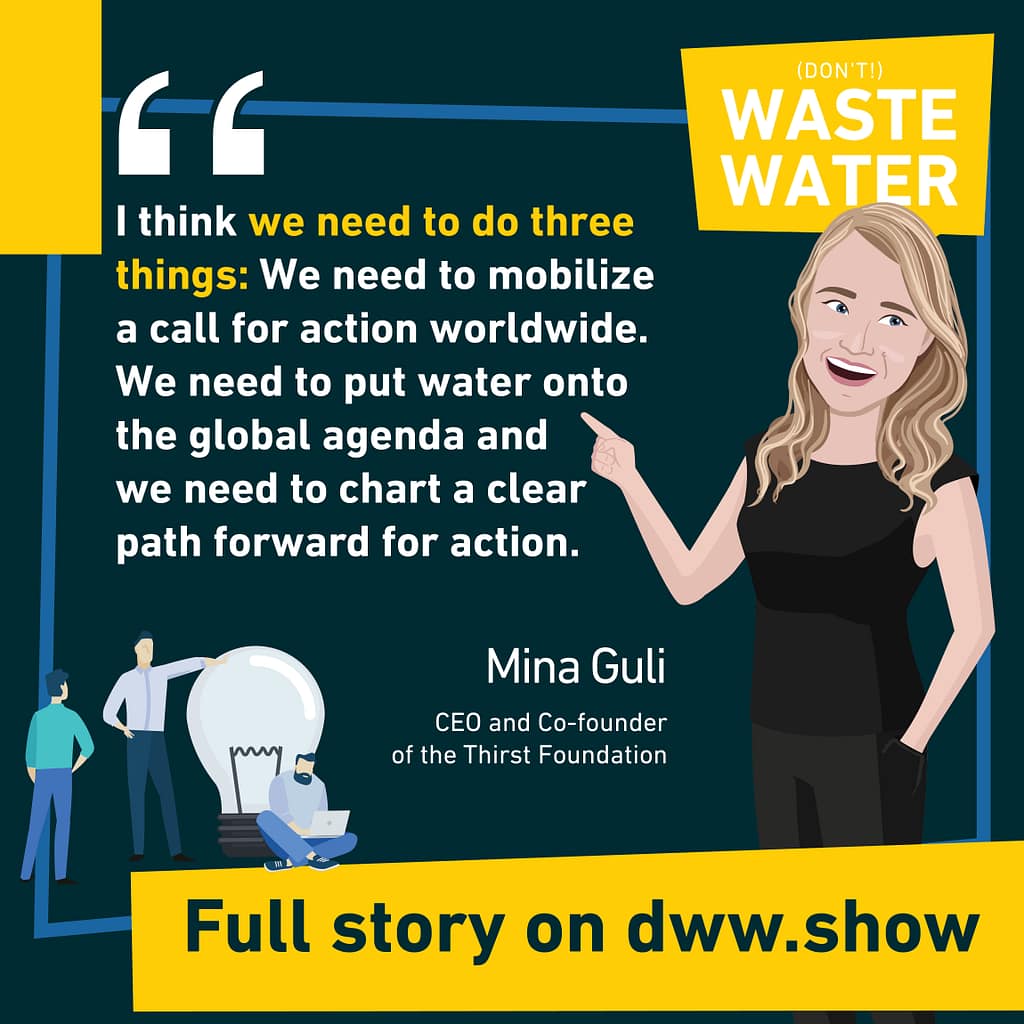
Mina Guli: Right. But the amount of water that gets used in agriculture is so massive. Even small amounts of saving can be very significant. And if you think about it, you know, moving from flood based irrigation to drip irrigation, changing the way that pesticides are administered, pesticides are often sprayed on with very large amounts of water.
Often have to get sprayed off with more water. There are ways that we can do things differently and smarter. We can do regenerative agriculture and help to store more water in the soil. We can cover our crops. We can use hydroponics, we can do so many different innovative solutions at large-scale corporate scale.
And also it’s more scale. I’ve met farmers. I met a young guy who was homeless and took a job as a farm hand one day because he knew. To put food on the table. And he took a job as a five. And I said, why did you start farming? And he said, because when I was at school, the only thing I remember is when I was really little, we had to grow a plant from a seed and I’ll never forget the joy I had of watching this seed grow into a plant.
So I thought I’d just work. As a farm hand, the guy was working on a farm that was in a desert in California. Literally had no water. And he worked for this older couple who eventually just said, you’re doing such a great job. Look, just take this and make. And what he was doing was researching and innovating every hack he could find to take every drop of water and reuse it and recycle it.
And he had put coverings up. He was capturing all of the transpiration, capturing all the droplets, running it off and putting it back into the system. So I do think that there is a heap of innovation we can impose. I think that there are ways that we can do things differently for too long. We’ve done things the way our parents and our grandparents did them.
The time for that is over well and truly over, we need innovation. We need solutions and you know what? Antwan the solutions are out there. There are so many terrific, innovative solutions, technology, easy hacks, like the things that these guys were doing, just unbelievably amazing, but not at scale. And if we can find a way to scale these things, even if it only drops the water used by 1, 2, 3, 4, 5% across the crops, across 70% of the world’s water, that’s not an insignificant amount to think about safe.
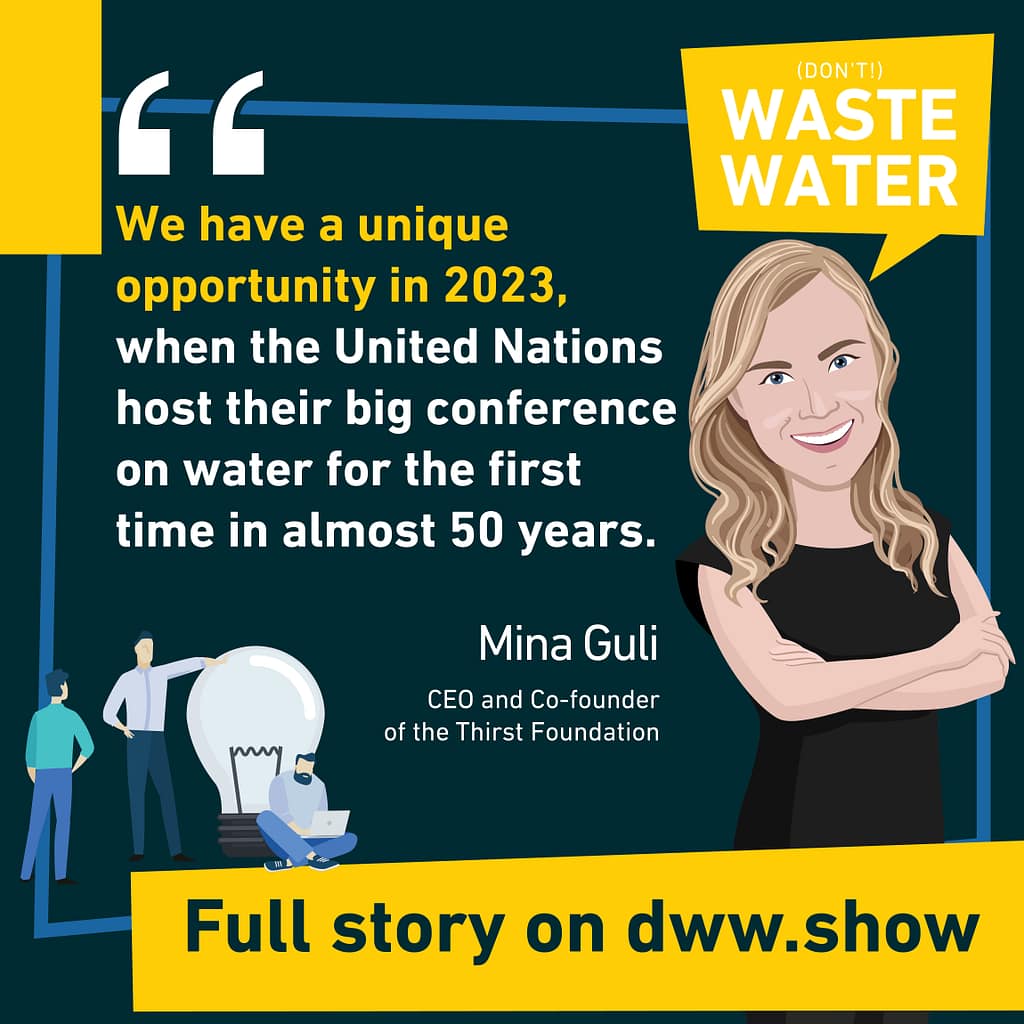
Antoine Walter: On the critical path to scaling those technologies. Usually if I try to summarize what’s my former guests on that microphone have shared that there’s two big tendency. The first is a certain type of conservatism. Like we will do like our parents and grandparents did what exactly you just explained. And the other thing is there must be an economical sense of doing it.
And here what’s quite often on the critical path is the price of water. Because if. Cheap. It doesn’t reflect its value. And if it doesn’t reflect this value, then there is no financial incentive in working on these two or three person incremental optimization of water users and bringing new technology to the market.
So do you share this concern that maybe today the water price doesn’t really reflect its value? And if yes, what can we do to overcome.
Mina Guli: Yeah, look, I think it’s easy to look at a pricing mechanism and say a price is equal to value and that dictates value. But in water, water has a venue so much greater than the pricing.
This is the year of the, of valuing water. The Dutch government has been leading a massive piece of work, trying to get companies and others to understand that the value of water goes far beyond a pricing making. And fi into the impact that those water molecules have right across supply chains and businesses and organizations and lives.
And I think. We need to find a way to communicate this better. I think we need to find a way to connect with people more and to help people to understand that the easy way out is just to stick a price on water, but that price does not reflect all of the externalities that water delivers to you in so many different ways.
So I think we need to get our heads out of this game of traditionalism and we need to get our minds into thinking laterally around how do we actually solve it?
Antoine Walter: Which brings us back to communication actually, because you’re absolutely right, by the way, I’m trying to push a bit in a corner and to be the devil’s advocate, but I couldn’t agree more with you will often have that problem.
I think it was pointed out by a study of the university of Michigan showing that there’s a one to four relationship between $1. You invest in water wherever you put it in the cycle and the benefits to the society. And then. Depending on the particular part you are looking at, you can have even a much larger lever effect, but that often boils down to it is a diffused benefits for a concrete cost.
And that is something which is sometimes difficult to reconcile. Is it something where we shall educate people? Can it be sufficient or is it even better to go at that higher level? You were alluding to where we simply all gets the message it’s it’s closed the gap and we’re all in that together.
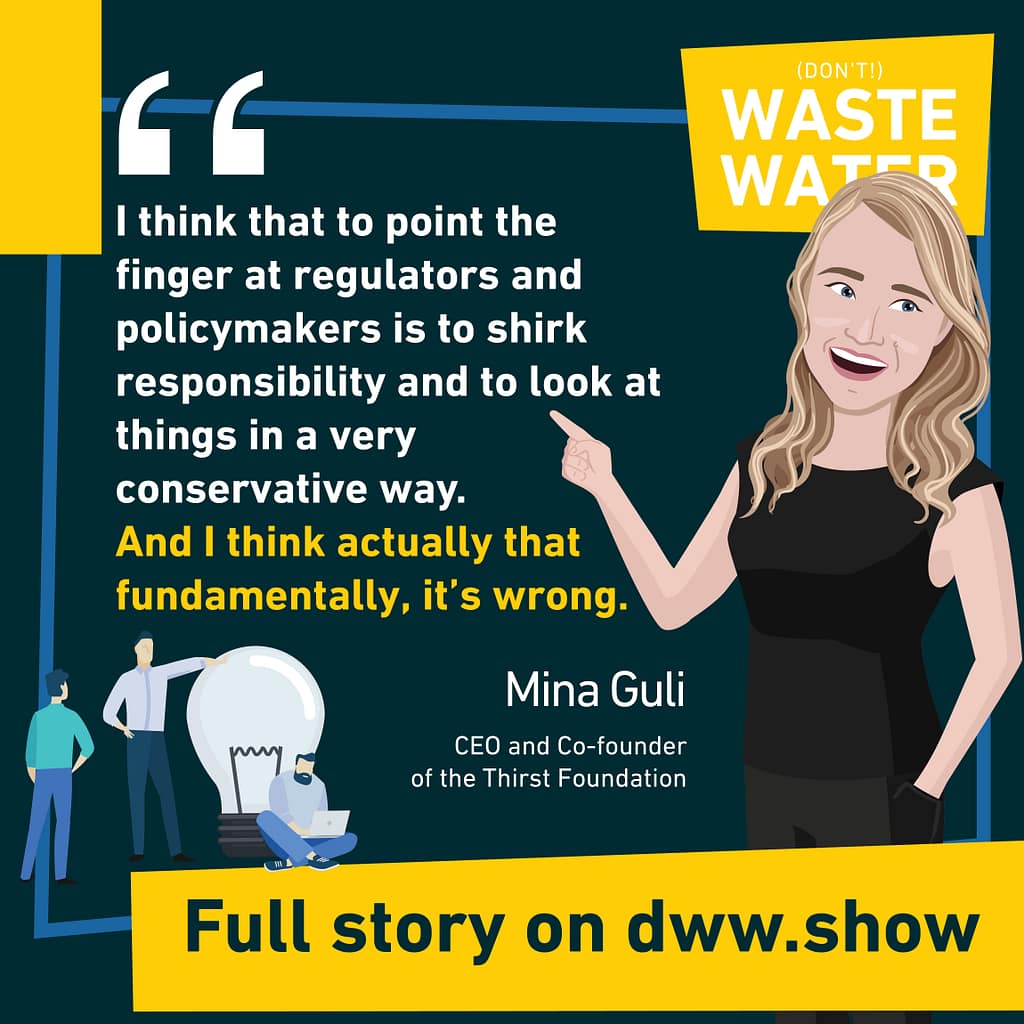
Mina Guli: Okay.
When I first got into water, which was not so long ago, so I am not like a world expert on water. Let’s just be nice to be straight about this, but like Anton, you spend your whole life doing water engineering and you are really truly an expert in, in this space, but here’s what I’ve learned. The first is that everybody in water will tell you how complicated it is.
Oh, Maina, it’s really complicated. Marina asks. What’s the one thing I should ask companies to do. Oh, Mina. It’s so complicated. There’s not one thing may not ask. Well, can you explain the water crisis to me in a really simple way so I can understand it. Oh, Mina, it’s actually very complicated. Okay. Mina says, well, is it all about scarcity?
I keep on seeing all these problems with scarcity. Well, actually it’s really. Enough, we need to make water simple. It is simple. If we don’t have it, we die simple. If communities don’t have it, they start to fight one another and eventually they will die. If companies don’t have it, their supply chains will be.
People will lose their jobs. The company will lose its acids. Its value will drop and the time will be over. I have run through cities where for sale signs, litter, the. Where the value of houses have dropped so much. You can not ask people to take your property. Why? Because the towns are dry because without water, there is no property value.
There are no schools. There are no businesses. There is no economy. There’s no community, there’s no life. There is nothing. You know, we need to simplify this down into really, really simple, basic terms, which says this is the. And we need to solve it by working together. And this is our clear, well, charted well explained, highly simple way forward.
Antoine Walter: I would encourage people to have a read at your, your report, which is available on the website of pollination. My simple question here is what happens next? You read. 80 pages of the report. You get a strong sense of the urgency. You get the full parallel with what we can learn from climate change, and then what comes next?
Climate change has its rallies and its demonstration all around the word. I didn’t see that much of that happening in the water sphere is what we shall aim for. What would be your very, very simple call to action just after the.
Mina Guli: Yeah. So, um, before, before I get to, to that, uh, I do, I do want to tell you something, uh, very short story, because I think that it’s really easy for all of us to listen to these podcasts, read the report.
Hopefully everybody does go and read the report it’s it’s filled with. Actually it sounds like 80 pages. You make it sound like it’s so boring. It’s not boring. It’s actually a really interesting.
Yeah, it’s, it’s actually, I think it’s a super interesting rate and we’ve attracted it in a way that’s very accessible and easy to, easy to get your head around. But I think, I do think it’s easy to, you know, sit passively and listen. Many of you are probably driving or doing something else at the same time as listening to this and think, you know, I’m just one person.
We talked about this at the beginning of the podcast. I’m just one person. What can I do really to make it do. So Antwon, I mentioned to you that, um, I ran across seven visits on seven continents in seven weeks. And then a year later I ran. 40 marathons in 40 days, Dan, six of the world’s great rivers. Um, I’ve run down the Nile and the Amazon I’ve slipped and slid through mud and watch my toenails come off yet.
I’ve run across deserts like the Atacama desert in Chile and Antarctica, a place that’s so cold. My water bottle froze and it’s so quiet. I could hear the sound of my own heart beating. But in 2018, I set out to run a hundred marathons in a hundred days. Totally crazy. And I wanted to show what it meant to be a hundred percent committed to something.
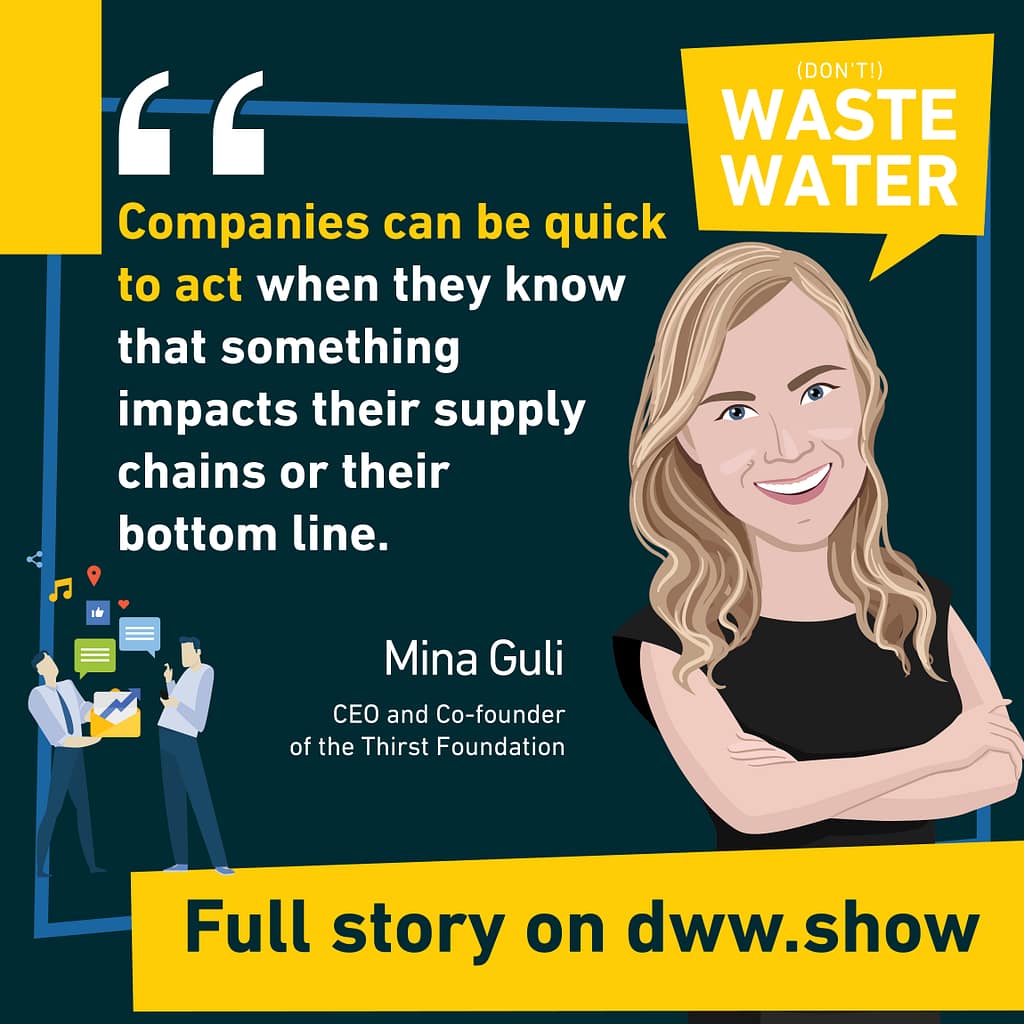
Everything was great in the. 10 20, 30, 40 marathons. It just sounds ridiculous. Just as I’m saying everything was okay. We were telling amazing stories. The whole point had been to go to the frontline of the water crisis and give people an opportunity and microphone to tell their stories to the media that we’ve been gathering.
And we got tons of media, billions of media impressions, loads of enthusiasm across the world for the, for the campaign that we were building, but in the backroom. I knew I had a problem. And by the time I got to marathon number 62, my body was breaking down so badly that on day 63, we did not go to run. We went to the hospital and at the hospital, I was told by the doctors that the damage that I had done to my leg was so bad that I had a 15 centimeter fracture in my.
And that the only option was to stop running because if I kept going, I would literally break my leg in half and there would be no more running, not just like the next day, but for a long time to come me forever. And at that time I thought my world was over. I thought the campaign was over. I thought all the commitments I’d made to.
To the next generation, to how planet to the team, to everybody whose stories I’d wanted to tell in the remaining 38 runs, there was all gone. And I sat there in my wheelchair and I thought, this is the end. This the, my son has dish. And all I’m going to see is darkness, but sometimes in the darkest moments, incredible things rise.
And as I sat there in my wheelchair, My team came in and they said to me, MENA this campaign, this cause this water thing that you were fighting for is so much bigger than you or just one person today will run your miles for you. Day 63, my team ran my miles, day 64. They were joined by people from across Cape town where we were.
Day 65 people from around the world started to join our run to tweet, to blog, to support, to text, to message about their stories and how they were connected to water. And by the time we got to day 100, we did not run 100 marathons. In 100 days, we ran thousands and thousands and thousands of kilometers further than from the north to the south.
160 cities, more than 50 countries and territories right across the world. People everywhere, running for water. That could’ve been the end, but it wasn’t because what has happened since then is that we have built this global mobilization of people now in over 153. Thousands of people raising their voices, talking about water and telling their own stories.
This year, we ran our world war. Uh, world river run zero waste run. We’re in the middle of organizing sweat for soaps. So if any of you out there want to have a run between the 12th and the 17th of October, you can go online. It’s free. Go to sweat for soap.com. You can sign up to run and participate. This is a little bit of a plug for every kilometer you run.
We donate a bar of soap to communities in need around the world. It’s all in support of global hand washing day, which is the 15th of October. The point being that we have tapped into this incredible, amazing community that exists around the world that says, actually we understand that water has an intrinsic value to all of us.
We interact with it every day. We need it. We love it. And we want. This is not a time for taking battles. This is a time for change, and it’s a time for unifying around our common goal and that’s water. So if ever anyone listening to this campaign, listening to this story, listening to this podcast, just thinking about these big issues thinks I’m just one person.
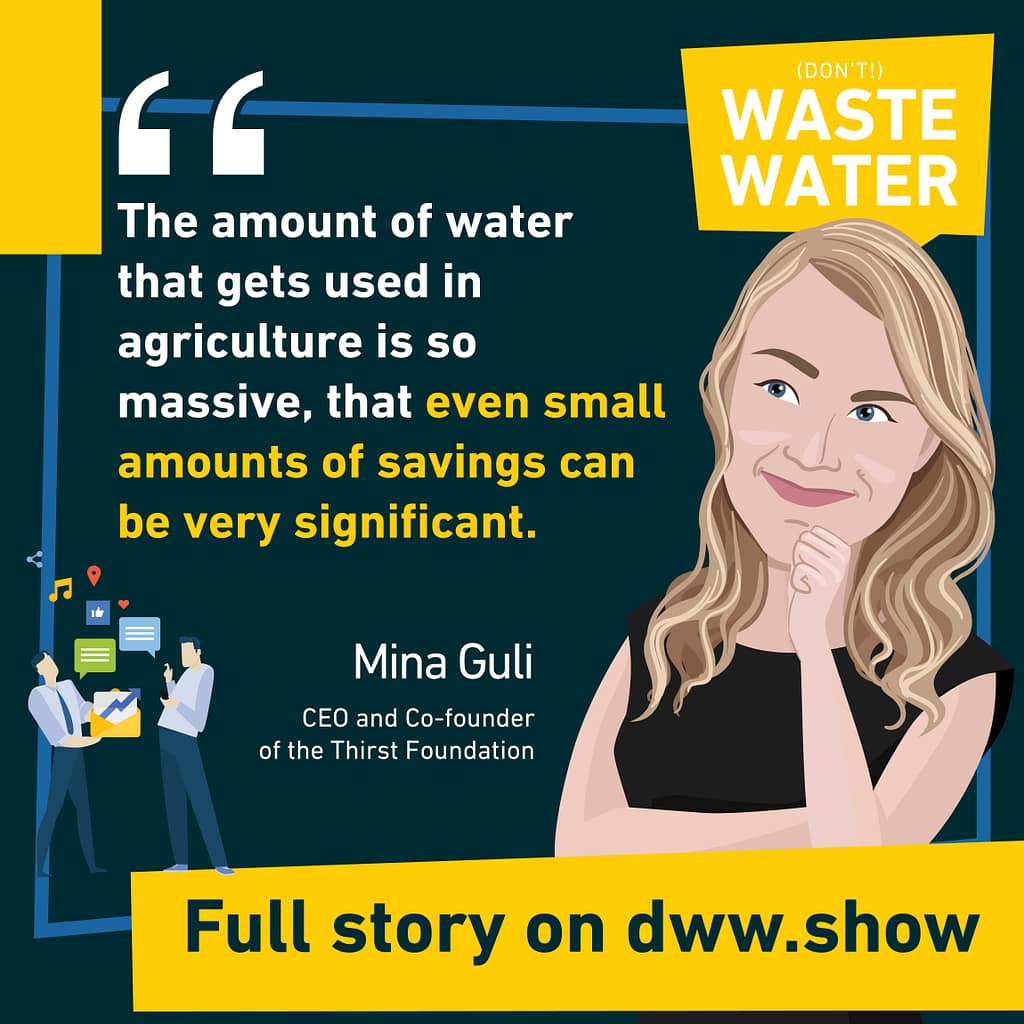
What change could I possibly make on one? You need to listen and think about this story because I am just one person. I’m a kid from the other side of the. I’m a kid from down under who said, this is something we need to do. And if all I do is take one step and another one and another one, just maybe I can be an inspiration to others about the power of what is possible when you want something badly enough.
Someone tweeted at the end of my run individually, you can make an impact, but together. We can change the world, you know what she was absolutely. Right. So why am I telling you that now I’m telling you that now, because I’m Antwan, you asked me from the report. What’s next what’s next is for all of us to step up, to use this report, to galvanize a movement, to have a conversation about solutions and to actually start to implement the recommendations that we’ve.
These are not the recommendations of one or two people. These are the recommendations of a whole bunch of latest and experts around the world. Recommendations that we can draw from climate change and we can apply to water so that we don’t have to wait until 2050 to see action so that we can accelerate this and make it happen right now and today.
And what does that involve? It involves unifying and around a call to action. It involves developing and building this radically inclusive movement for change. And it needs to involve some kind of commitment to action by companies and others. And if we can do that and if we can use this report to achieve those changes, then by the time we get to the steps of 20, 23, we will see that whilst individually, each one of us may have only been a drop in the ocean.
Together we’ve become a movement of change and that that really will have the power to move the needle on mortar and Silva global water crisis.
Antoine Walter: That’s somehow the human bird metaphor towards closing the gap. I love it. It’s inspiring. What you just shared with me, inspiring me. Not, it was a pleasure to dive into those fascinating elements.
Again, I hope I didn’t sound negative when it said 80 pages reports. If you’re into illustration, there are beautiful pictures in the, in the reports and there’s really actionable examples of what to do. So I really recommend everyone listening to this to have a read at the reports. The link is obviously in the show notes and then beyond the report itself, I think what’s what you just showed me is giving us a sound sense of the kind of actions we can all take to get.
To close that gap and to start seeing how we are actually doing that. But the next time we measure in 2023 to all achieve it, it by 2030, if that’s fun for you, I propose you to switch to, uh, the rapid fire questions to wrap up our discussion for today
Mina Guli: for bring it on.
Rapid fire questions:
Antoine Walter: So then this last section, I tried to have short questions.
I try not to sidetrack you, but I cannot promise. And, and you can have shorter answers if you, if you wish. So my, my first question, what is the most exciting project you’ve been working on and why
Mina Guli: to be really honest? It’s watching these mobilizations of people around the world grow, it’s seeing and observing and being part of this radically inclusive movement for change.
Seeing the bold optimism that exists amongst these people and the unwavering commitment to making real meaningful change. It’s watching a woman on a Zimmer frame. I think that she can get to one kilometer watching the community around her saying you can do so much more and watching her over a week as she far exceeds anything she thought she was capable of and knows that every kilometer she covered, she helps to change the lives of communities in need.
On the other side of the world, by donating soap, this is the most exciting, amazing thing. The most uplifting thing I can tell you, like, it’s just such a phenomenal thing to watch and to, to be a part of
Antoine Walter: what is your favorite part of your current.
Mina Guli: Hearing the stories of ordinary everyday people doing extraordinary, unbelievable things, seeing them realize the power that’s in their hands, seeing them realize that you don’t have to be anyone to be someone that every single one of them is capable of doing great and amazing things and fulfilling their dreams and their aspirations.
For me, that’s so uplifting and inspiring because when people realize that. And when we all were together and unite that passionate enthusiasm, we couldn’t do anything. Even solving a global water crisis by 2030.
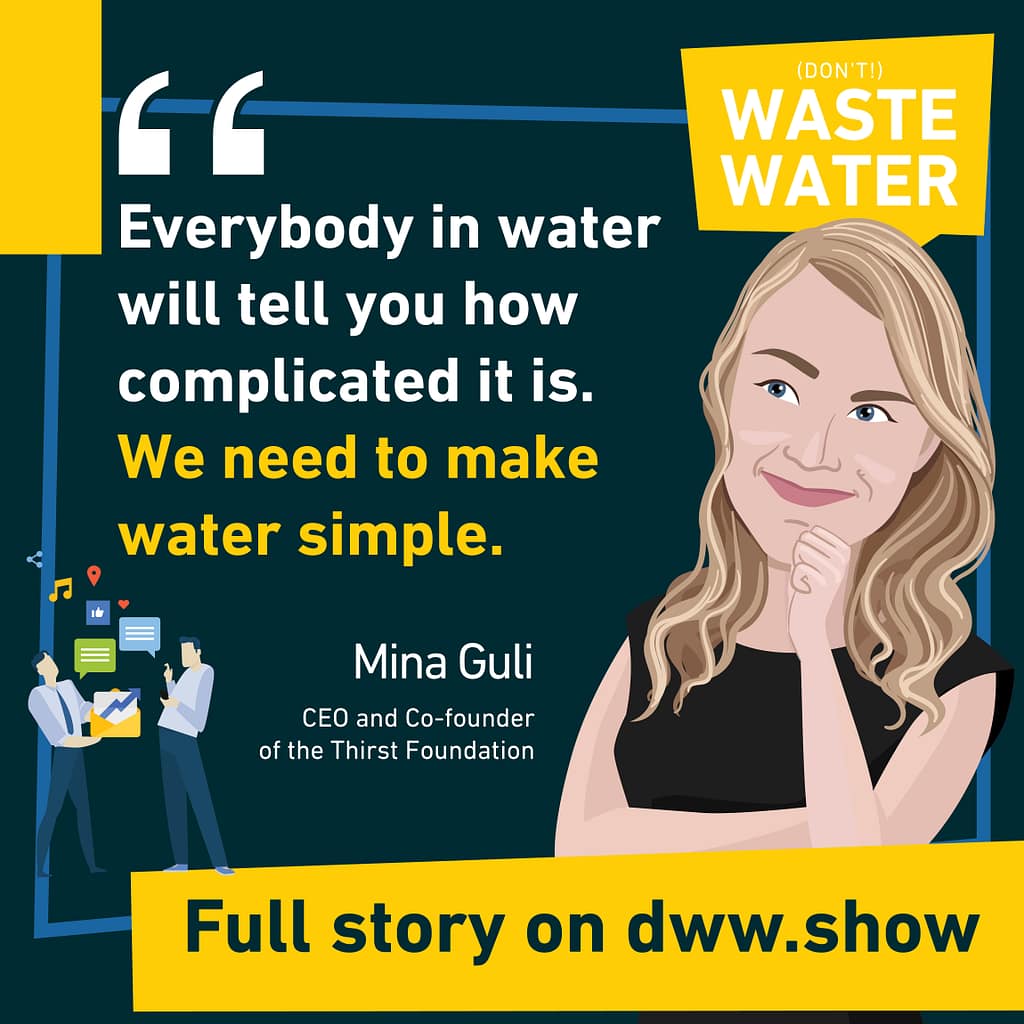
Antoine Walter: Is there something you are doing today that you will not be doing in 10 years running?
Mina Guli: Well, I’m not kidding.
We’ve got to solve this water crisis cause you know what? I’ve got to start running this running things. It’s odd, far out. It’s hard. It’s hard. You get up early in the morning, crazy early in the morning, go out in the rain and the hail. And, and you know, when you’re not a talented runner, like, you know, I did not grow up running, but I was a fat little kid when I was growing up.
I was the last one picked for a sports team. You kidding me? I’m a bad runner. So yeah, in 10 years time, I’ll definitely not be running, please. Everybody step up, make change on water. So I don’t have to run.
Antoine Walter: Can you name one thing that you’ve learned the hard way.
Mina Guli: I’ve learned a lot of things the hard way.
Um, I’ve learned that thing through COVID I’ve learned that we can’t hope for things to be better. We need to accept the way they are today and we need to adapt and adjust accordingly. I think I’ve learned the power of our mind in both setting boundaries and limits and in tearing those boundaries and limits down in the ability to change one letter in a word.
And to shift our entire frame of reference. You know, I’ve got to go to work today. I’ve got to go for a run. I’ve got to go and solve this problem. And instead think about things as I get to go for run. I get to go to work. I get to go solve this problem. And I think that for too long in the water space, We have used traditional words and traditional mindsets to limit the way that we’ve approached these solutions and limit the way that we’ve approached collaborations with others.
And I think it’s time for us to think differently. And I really hope that through this. Horrible pandemic. And through all the tragedy that has ensued as a result of it, we will be able to start seeing the power of what it’s given us, which is to think differently, to do different things. They, up to be differently.
And our hope that we can apply that to water. And we can start to be smart about solutions and say, right, if we apply our collective ingenuity, we can actually get this thing done.
Antoine Walter: Which offers me a perfect transition towards my last rapid fire question, which is what is this one thing we do today with water that will be looked at as totally nuts in 20 years?
Mina Guli: Well, I think to be really honest, 90% of what we do today will be looked at in 10, 20 years. And people will look at us and say, what were they thinking? But, you know, the biggest thing is not to value it, to take it for granted. I said this earlier on water is everything, but we treat it as if it’s nothing.
If there is one thing that we will look back on in 20 years time and say that was absolutely nuts and stupid. And what were we thinking? It’s that we treated water as if it was nothing. We took it for granted. We used it and we abused it and shame on us for doing that shame on all of us for continuing to do that.
And actually what we need to be doing is thinking about doing things, reframing things, but most importantly, valuing this precious, precious thing, cold water.
Antoine Walter: Well, Mina, you’ve been such a inspiring and awesome guests that I can’t help. But to ask, would you have someone to recommend me that it should definitely invite on that same microphone?
Mina Guli: Oh, Antwan. Yes. There’s lots of people. I’ve got lists of people that use. But, you know what, actually, I wouldn’t, I suggest that anybody that’s listening to this podcast, that it has a story to tell, please, in the notes to the show or in however Antwan you collect people’s feedback and stories. Anyone who has a story to tell about water, please share your story.
Please share with Antwan. Preferably share with me my handles on social media, uh, at Mina Gooley, M I N a G U L I or on Facebook where main ugly water. But please share your stories. There is nothing I like more than hearing the stories of how people interact with water and unearthing the non-traditional voices.
Too easy Anton, to find people who already have a platform to talk about their issues and relationships with water, and it’s time for us to find communities and organizations and people on the front lines and others that can talk about what it’s like. You know, I have had such a phenomenal opportunity in all my running to meet really incredible people.
Like. On the banks of the ROC a see that used to 30 years ago, be filled with water and have shipping boats sailing across it, taking like goods and food across. And now it’s so dry. The ships lie like carcasses steel carcasses in the sand. I ran between them. I met women who would tell me. What it was like to actually go out on these boats and fishermen and others, these opportunities to share stories and understand what it’s like, understand what it is to be confronted by the water crisis every single day, not just scarcity, but pollution.
You know, the farmers I met in the, in the beautiful, amazing, um, valleys in Provence in France where they’re growing. Amazing grapes to grow phenomenal wine, just saying, but talk about the whole complexity and issues, not just around scarcity, but pollution in the underground rivers and underground water supplies and these, uh, stories.
They’re all stories and they need to be told. So Anton. I don’t have a specific suggestion for you. Of course, I’ve got lists of loads of amazing people you can invite. But I think the real challenge for all of us is to find new voices, diverse voices, people whose stories need to be told, who can connect to others and who can actually start to galvanize this sense of connection between those of us that live in big cities, where water comes out of attack and the rest of the world who lives in places where they’re confronted with.
Every single day.
Antoine Walter: Well, that makes for the most perfect of all conclusions I’ve ever had on that microphone. So thanks a lot for that. And I’ll underline once more than to illustrate what you just said. There are some very impressive pictures in the report as well, which give a sense of what you were just saying about those people who sew it with their eyes.
These appearing, and I’m not sad Trek you here. And I closed this. Thanks a lot meaner. Thanks for sharing all of that. Thanks for the inspiring message. And for sure if I get any story. Have a direct connection to me through, uh, the social media, which I’ve put as well in the, in the show notes or contact me and send everything over to, to Mina so that you can also gather those stories.
Thanks for having been with us. And I hope you succeeded because if you succeeded, we also have. Hope
Mina Guli: is not a strategy planning and action. Uh, so no need to hope that we succeed. We will succeed because a failure is not an option, but B because I see the power of what we’re doing, and I know the importance of the action that we’re taking.

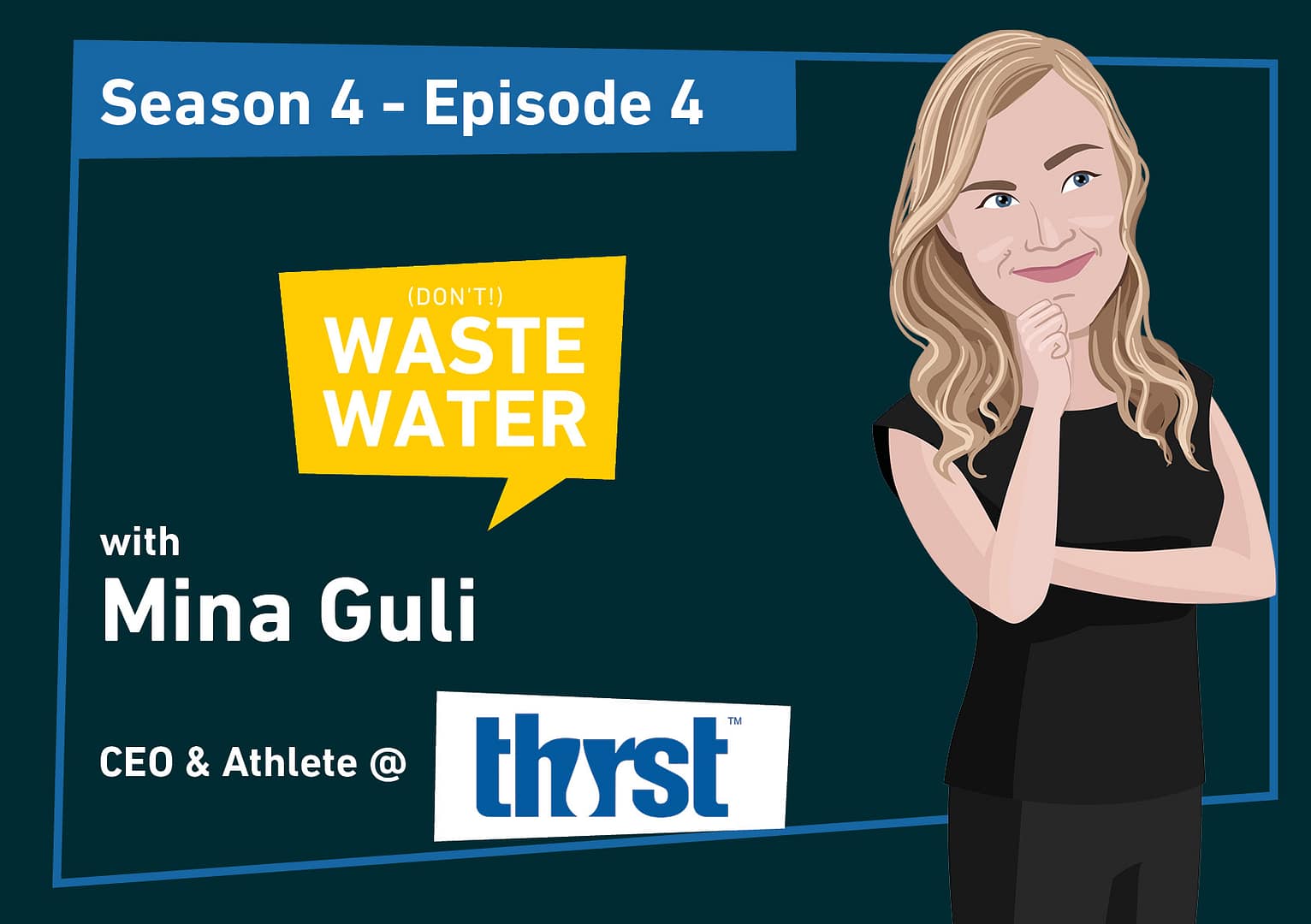











3 thoughts on “18 Months Left to “Close the Gap”: Beware, the Water Clock is Ticking!”